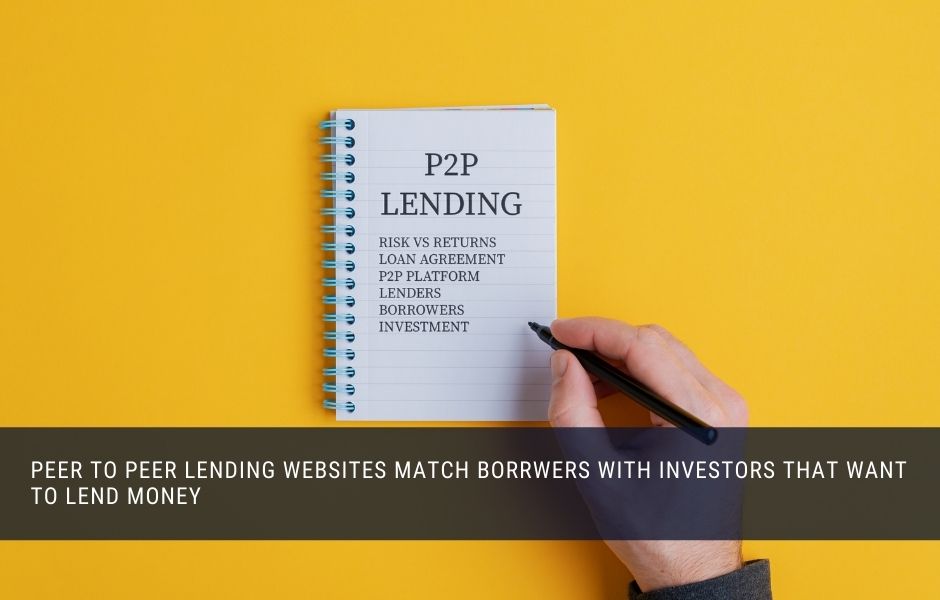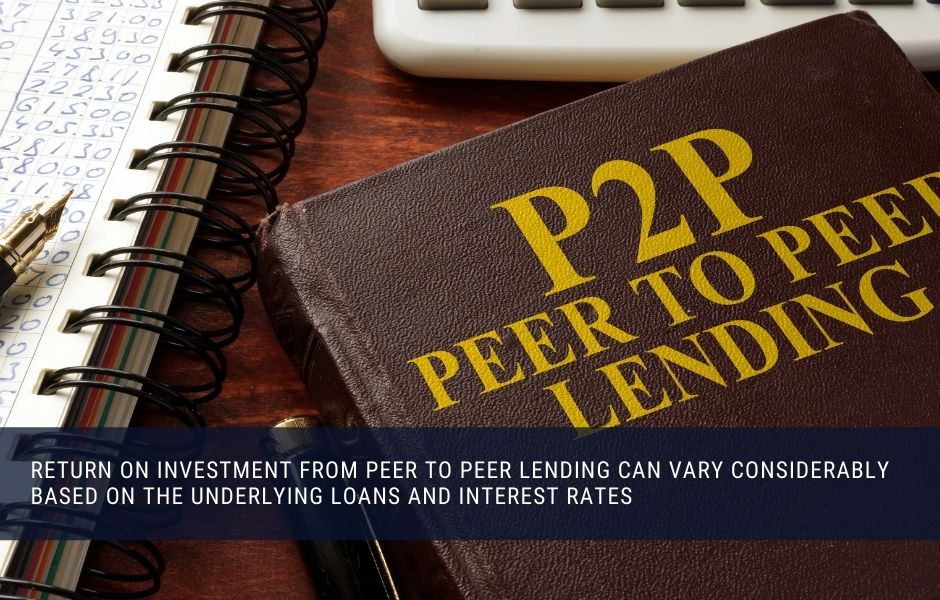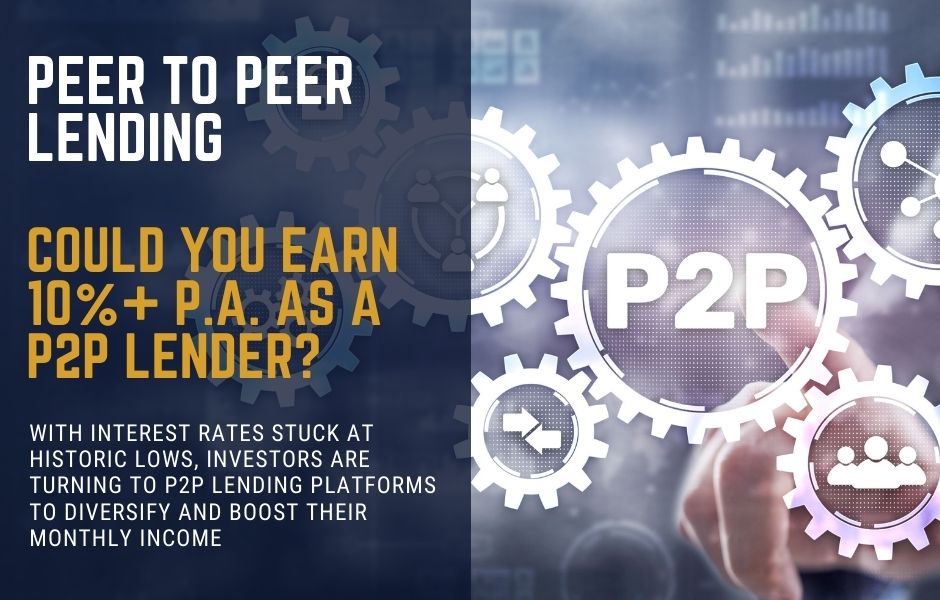Peer to Peer Lending | Monthly Income Investments
Peer to peer lending is fast becoming one of the most popular tools for private investors to add high-yield monthly income investment to their portfolio. Find out how it works and how to invest right here

David Garner
Asset Focus: Peer to Peer Lending
Peer to Peer Lending – or P2P – has exploded in popularity in recent years. As interest rates continue to languish at historic lows, providing loans to others online can seem like a great way to diversify and boost your monthly income. In today’s article, we look at what private lending is, how it works, and how you can get involved.
What Exactly Is Peer to Peer Lending?
At its’ core peer to peer lending is very simple. An online platform connects borrowers with private investors who want to earn interest on their capital.
The borrower will make a loan application via the platform. They will provide basic information such as loan amount and purpose of the loan. They will also consent to a search of their credit file.

Investors can then access that information and select which loans they want to invest in. As an Peer to peer lender, you can fund entire loans, or smaller pieces of multiple loans in the form of notes. Some platforms have notes as low as $25. Investing in multiple loans like this is a great way to reduce risk of default with any single borrower.
The P2P lending platform handles all the admin such as underwriting, loan closing, distributing loans to borrowers, and collecting monthly payments. Monthly distributions are made to the investors, and the platform will usually deduct a management fee of around 1%.
Related: The Monthly Income Investors Guide to Master Limited Partnerships
How to Invest in Peer to Peer Lending
There are a great many P2P lending websites to choose from. Most platforms have a particular niche such as the type of loan, or type of borrower they provide access to. For example, some P2P websites specialize in matching lenders with small businesses seeking loans. Other platforms specialize in providing unsecured loan for borrowers with less than perfect or limited credit history.
Here are 8 of the most well-established P2P lending websites as of August, 2021:
As mentioned above, some of these peer to peer lending websites specialize in small business loans, others in private unsecured loans. There is even a non-profit in there too (Kiva). But how do you choose which type of peer to peer lending is for you? Well, that’s exactly what we’re going to look at next.
Related: The Top 5 Monthly Income Paying REITs Right Now
How to Choose the Right P2P Lending Opportunity
As with any investment, you need to do some research before you part with your hard earned cash. On closer investigation you may find that peer to peer lending is not for you.
The five key questions to ask yourself when considering P2P lending are:
- How much money to you want to invest in P2P lending?
- Do you want to invest in whole loans, or a portfolio of loans and borrowers?
- Will you lend only to prime borrowers, or will you also consider riskier borrowers?
- Do you want to lend to private individuals or businesses, or both?
- How long do you want to lend each investment for?
Once you have answered these questions honestly, you can start to delve into different peer to peer lending websites and hopefully find a platform that meets most, if not all of your requirements. And remember, all investments carry risk, so never invest an amount in any single asset that you cannot afford to lose.
Related: The Ultimate List of All 53 Monthly Dividend Stocks
What Returns Can I expect from P2P Lending?
Rates for borrowers on P2P websites vary from 6 per cent (6%) to a whopping 36 per cent (36%). Little wonder then that it is possible to generate double digit returns investing in these types of loans. This is particularly attractive for today’s investor due to persistently low interest rates from central banks.

A well-balanced portfolio of higher risk peer to peer loans should deliver annualized returns in the region of 10 per cent (10%) to 12 per cent (12%). This is based on a portfolio of loans with higher interest rates and better returns, combined with a selection of loans to lower-risk borrowers with lower interest rates.
Related: Money Market Funds | The Low Risk Short Term Investment Generating Monthly Income
Is Peer to Peer Lending Risky?
Whilst P2P returns certainly look attractive, unsecured lending is not without risk. Investors are entirely reliant on borrowers to fulfil their commitments to repay, and a default could mean total loss for the investor.
Also, peer to peer lending investments are not FDIC insured. That means you will not be reimbursed if the borrower defaults or the platform fails. That said, most platforms have agreements in place for other institutions to take over their loan portfolio if they collapse
Finally, most P2P loans are amortized. So each payment from a borrower consists of some interest, and a return of some capital. By the end of the loan, your investment is paid off in full. There is no final lump sum payment, unlike with interest only loans as is the case with real estate private lending.
Related: 24 Investments That Pay Monthly Income | The Ultimate List
Conclusion and Resources
Informed investors make better decisions. If you want to learn more about peer to peer lending, you can further your research using the following resources:


